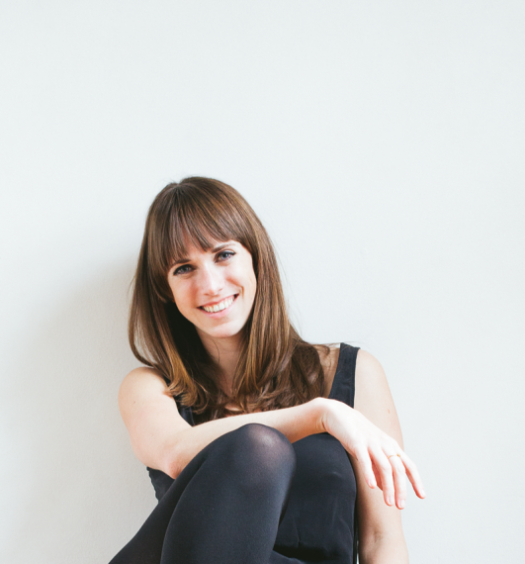Accepting My Depression: How I Learned To Be Honest With Myself

Photo by Pham Khoai
Haiti is a wild place. The humidity kisses you upon your arrival. The smell of street food and diesel gas fumes fill the air. The people are boisterous and full of life. Working on the island of Hispaniola, shared between Haiti and the Dominican Republic, I loved taking it all in. Driving down the road in either country, I never knew what I would see: a cow being wrangled by a rouge cowboy (or elderly man), dancing, laughing, eating, fish or turtles for sale. This island is overwhelming to the senses for one who is not used to it. After seven years of working on this island, I still love how unique and exciting each passing day can be.
I have many friends who work overseas, or in a cross-cultural context in the United States. For many of us, much of our time is simply spent trying to make sense of this place or culture we have grown to love so much. We don’t want to offend. We don’t want to push. We want to get to know the people and places so genuinely that all of our work simply flows outward from a sincere place of understanding. It can be beautiful. I have seen it.
However inspiring this kind of “getting to know you” is, it can also be distracting. For years, I would drag myself into my room at 11:30 in the evening, take a cold shower and fall asleep before I could even tell my husband goodnight. I would rise early so I could make sure everyone knew I was there to help. And, when my body reacted in revolt, I questioned myself. I can do this! I told myself time and time again. I hiked the mountains, I slept in tents, I got tropical diseases, and I did it all because I was both interested in helping and loving every second of it. Later, I also did it all because it helped distract me from paying attention to myself.
I have been told that there are a few different types of people when push comes to shove. One of those types of people is labeled “caretaker.” And, while I don’t put a ton of stock in labels, this one hit the nail on the head for me. I’d rather be taking care of other people and making sure they are good. It’s not something to be ashamed of, just the way some people are. I have come to realize that a good number of people who start non-profits or last in thriving non-profits are this “caretaking” personality. If this is you, I want to share something with you: it is possible to care for yourself while in the middle of the wild.
I remember when I started realizing I needed help.
For me, I could not sleep more than an hour or so a night. This lasted (on and off) for several weeks as I lost my appetite and got spooked at anything out of the ordinary. My back was up, and I was defensive. It wasn’t until some of my friends told me they were worried about me not being myself that I finally decided to go to a physician during a two-week visit home. After that, I made my way to my now, therapist’s office.
For us “caretaker” types, we don’t like to hear that there is something in our personal lives we need to deal with. We don’t like to hear words like “depression” or “anxiety.” We like to hear that we helped someone, we endured, we did it. We braved the wild and made it out! The world came crumbling down when my therapist told me that I was suffering from some intense emotional issues that I needed to spend time on, especially as I was in the USA with a time crunch.
Then, my wonderful therapist showed me a picture of a person in a pit. He said, “What do you do when you see someone in a pit?” Immediately, I answered, “Get in!” He laughed and said, “You have been doing this for a while now. Do you think that makes a significant difference in the lives of those you wish to serve?” I thought about it as he showed me another image. It was a (wise) person holding down a rope to help bring someone up from a pit. “This might be a more effective way to help people, and yourself,” he said.
We’ve all heard it before: put the oxygen mask on ourselves before someone else; you can’t help people without helping yourself; etc. All those words had done to serve me is make me work even harder to prove there was nothing wrong with me.
I have come to realize that ignoring parts of us will not go away. I have also learned that admitting that you struggle with depression and anxiety does not make you unable to do your work. While I only heard the parts about my weakness, I did not realize the strength that would come from my inability to “do” all the things I wanted to do. I did not realize how my ability to admit my weakness would help me in the wild of my life and my work that I cared about so much.
Our friends, both in the US and in Haiti, came to me. They celebrated what I did well and helped in areas where I was struggling. They embraced my depression and anxiety. Those whom I was trying to be perfect for started admitting their issues and needs, too. Somehow, the thing I thought would separate me from my staff and friends bound us closer.
We might forget, but we are all human. We are all trying to brave the wilderness of our lives and work. And being honest with ourselves starts with taking the time to look inward and being ok with not being superman (or woman).
I have realized that through taking care of myself, I am braving my internal wilderness and not only the one happening outside. I am braving some of the steepest mountains and darkest caves. I am building endurance in my heart and not just in my lungs. Most of all, I am doing it while still in the middle of it all.
You do not have to give everything up to walk through a difficult season. You do not have to give everything up if you deal with chronic or recurring depression and anxiety. You just have to be honest, seek help, and not try to do it all. Most of all, you have to be honest with the people around you.
FROM THE EDITOR
At Conscious, we are inspired by stories that cause us to think differently and think big-picture, and so we set out to tell stories with the help of leaders and influencers within the social good community. You can read more stories like this when you join as a member.



